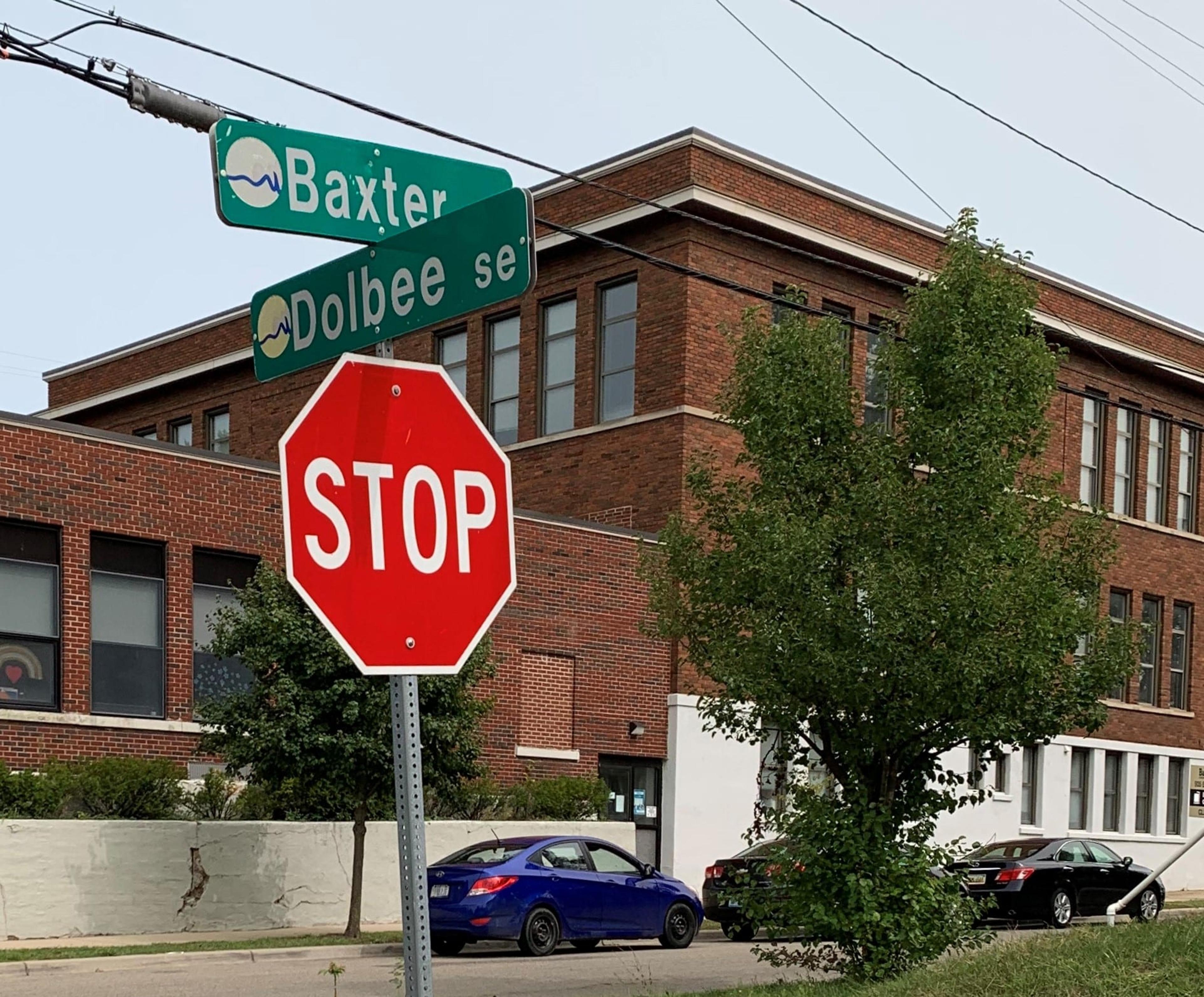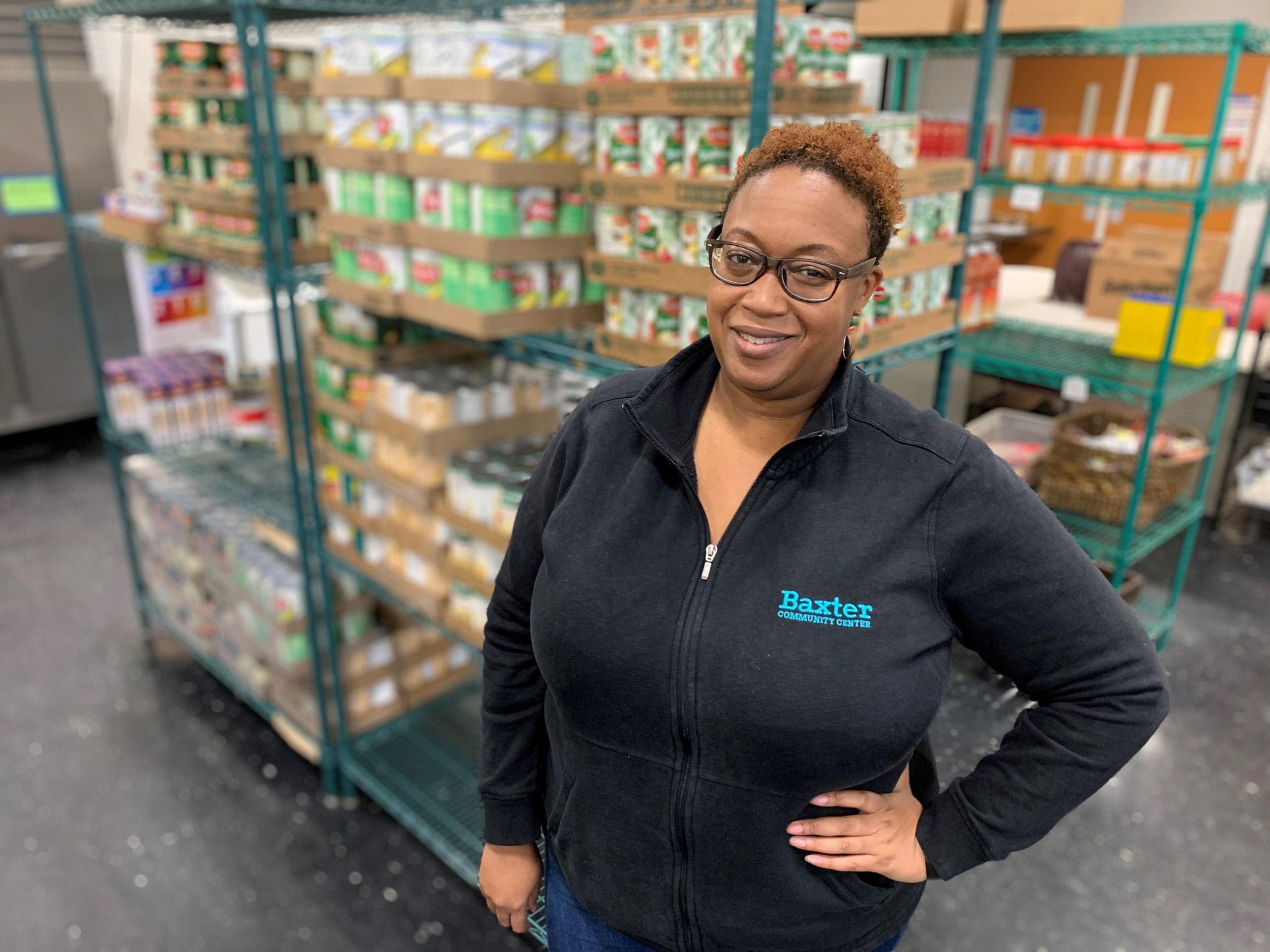Understanding Social Determinants of Health in Michigan
Julie Bitely
| 7 min read

Many of the community members accessing services at Baxter Community Center in southeast Grand Rapids have jobs considered “essential” in light of the COVID-19 pandemic. They ring up groceries, clean hospital rooms and work as home health care aides. They are essential to the continued operations of many organizations and businesses but their work is often undervalued by society. It’s typically lower-paid, oftentimes with no or limited benefits and requires workers to flex their schedules to fit the needs of their employer. This has created major challenges for many in accessing what they need, particularly at the very beginning of the outbreak in Michigan. “A lot of our families couldn’t get to stores with the limited hours and restricted transportation, especially those navigating work schedules,” said Sonja Forte, executive director, Baxter Community Center. Advice to stay home wasn’t practical for workers already facing razor-thin budgets. “They continued to work on the front lines while the uncertainty was high,” Forte said. “A lot of places didn’t have proper PPE (personal protective equipment) or access to it.”
Zip codes predict longevity
COVID-19 has shone a spotlight on the role income inequality plays when it comes to health. Income is one of many factors that make up what public health experts refer to as social determinants of health. There’s growing agreement that these factors, which also include things like access to healthy food, discrimination, housing instability, education and how safe your neighborhood is, are the main drivers of health. In fact, more than 80% of what goes into how healthy people are, isn’t driven by the medical care they receive but by social determinants of health. Broadly, health is much more dependent on our own behaviors, the environment we live in and certain socioeconomic factors than the medical care we receive. These social determinants are so strong that the neighborhood you’re born into is actually a predictor of how long you’ll live, according to data from the National Center for Health Statistics. On average, Michiganders can expect to live to be about 78 years old but certain neighborhoods in the state fall far below that. Residents in the Baxter neighborhood can expect to live to be 75 years old but drive a little more than two miles to East Grand Rapids and average life expectancy shoots up to 91 years – a 16-year difference.

In some Detroit neighborhoods, life expectancy only averages 62 years - 16 years lower than the state average and nearly 30 years lower than someone born in East Grand Rapids. What accounts for the loss of years of life for some Michiganders? Evidence points to the different aspects that make up social determinants of health. “The research is clear: Social determinants influence health disparities and burden certain population groups with higher rates of illness, injury, disability and mortality,” said Daniel J. Loepp, president and CEO of Blue Cross Blue Shield of Michigan. “To eliminate these disadvantages, communities must have equal access to the resources that improve quality of life.”
Health depends on opportunity
Even before COVID-19, the stress and pressure to meet simple, basic needs was familiar to many in the Baxter neighborhood, where 42% of families live on less than $25,000 per year. “Most of the people we serve, work every day,” Forte said. “Most of the folks that we serve are trying to make ends meet.” Services offered at Baxter include a child development center, health center, market pantry and youth mentoring.

When residents access services at Baxter’s health center, they fill out a questionnaire that relates to different aspects of social determinants of health. Forte said it helps guide resources and programming to address barriers like transportation and childcare that make it harder to get to appointments. “Missed visits aren’t always because people don’t care or just choose not to go,” Forte said. Generational poverty in the Baxter neighborhood means residents born there are starting behind their peers born in East Grand Rapids, where median household income is $133,982. That means Baxter kids might not have access to the same types of childcare and educational opportunities. They often don’t have parents who are able to fund their college education and perhaps kick in funding for a down payment on a starter home. Their parents might be working more than one job just to make ends meet, which could mean they don’t have as much adult supervision or guidance at home. A lack of resources means it can be harder to get fresh food and find time to fit in physical exercise as a family. All those factors add up, leading to stress and an increased risk of poor mental health. Forte said people feel like they’ve personally failed, when really, they started the race of life far behind others. “They need to do all these things on their own and they’re measured against folks who were handed a starter kit,” she explained.
Barriers related to social determinants of health exist statewide
When it comes to health, there are hurdles for some that don’t exist for others. These hurdles exist in the neighborhoods we live in and affect how healthy we are. They might not look the same, but obstacles exist in the rural reaches of the Upper Peninsula, in the resort towns of the northern Lower Peninsula and in the downtowns of Lansing, Detroit, Grand Rapids, Kalamazoo and other locales. The United Way’s ALICE report, which stands for Asset Limited, Income Constrained, Employed, examines the prevalence of families struggling to afford basic needs. In 2019, ALICE data found that 1.66 million households in Michigan – 43% of the population – couldn’t afford basics such as food, housing, health care, childcare, transportation and technology. These households are made up of all races, ages, genders and family compositions. For these families, the cost of living outpaces what they earn, and they're often just one missed paycheck away from a financial crisis. For people of color, the disparities are even worse. “Our ALICE report confirms many households are having a difficult time as costs continue to rise. This puts them under increased pressure to meet their most basic needs, including healthcare," says Tonya Adair, chief impact officer, United Way for Southeastern Michigan. "Any crisis, like a pandemic, can heighten the effects of economic disparities on families. This also impacts their ability to access much-needed care. United Way, working with our partner organizations, is laser-focused on addressing issues directly affecting a family's ability to provide stability, where their children have an opportunity to grow and thrive.”
Taking a closer look at social determinants of health
Over the next 12 months, Blue Cross Blue Shield of Michigan journalists will be diving into some of the environmental and socioeconomic reasons behind poorer health for certain neighborhoods and groups of people. We’ll be looking at topics such as food insecurity, poverty and employment, education, housing and more. Along the way, we’ll talk to community organizations working to address these social determinants of health in neighborhoods and communities across Michigan. “Blue Cross Blue Shield of Michigan’s longstanding mission is to improve the health of all residents,” Loepp said. “Over the last decade, we’ve taken a comprehensive approach to identify and address the disparities affecting vulnerable populations to ensure we meet the needs of our diverse members. "We’re proud to be the largest private donor to Michigan’s free clinics, providing low-cost medical, dental and mental health care for safety net programs for the uninsured and underinsured," Loepp continued. "Additionally, our organization has introduced policies that emphasize health equity, cultural competency and the quality of health care delivery. We’re connecting members to physicians, raising awareness of implicit bias through education, supporting organizations to address food insecurity and partnering with foundations to expand access to telehealth services for everyone.” If you’re struggling to afford basic household needs, the United Way’s 2-1-1 service can help. This free and confidential service helps people find the local resources they need 24 hours a day, 7 days a week and can be accessed by dialing 2-1-1 or visiting 211.org. Related:
- Safety Net Grants Ensure Access to Care for Vulnerable Communities
- How Blue Cross is Helping During COVID-19
- Understanding Implicit Bias in Health Care
Photo credit: SolStock





